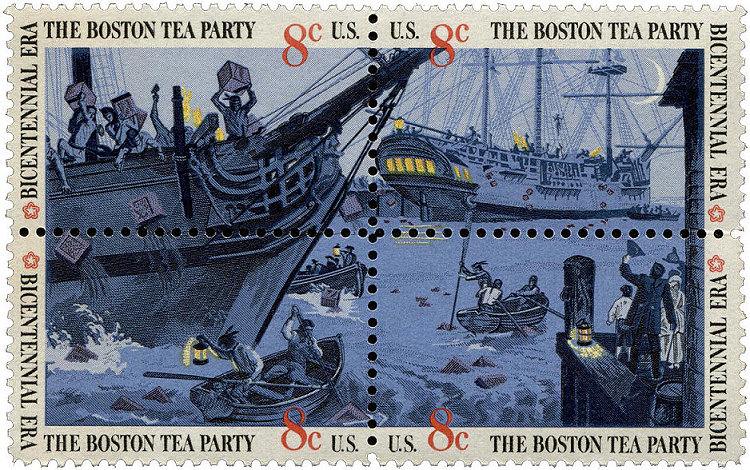On today’s date in 1773, the Boston Tea Party political protest occurred. The American protestors dumped 342 chests of tea into the Boston Harbor. This was the first of many acts of defiance from the colonists against British rule. The event took place at Griffin’s Wharf in Boston, Massachusetts.
The major pushback was a byproduct of frustration against the 1765 Stamp Act. The act taxed various public printed paper products. Frustration continued as the 1767 Townshend Acts taxed more essentials including paint, glass, paper, lead, and tea.
The taxes were implemented to offset Britain’s cost from the French and Indian War. As a large amount of money was spent to protect the colonists from French Canadians and allies, Britain felt these taxes were warranted but the colonists felt they shouldn’t have to pay without proper Parliament representation.
THE QUEBEC ACT AND THE BOSTON TEA PARTY
After the Boston Tea Party, Britain went on to implement five “intolerable acts” which ultimately led to the American Revolution. Among these acts was the Boston Port Act, this act closed Boston’s ports until locals paid for the tea destroyed during the protest.
Another act was the Quebec Act. This act was part of an effort for Britain to gain French Canadian support by allowing them to practice Roman Catholicism. As such, English-speaking colonists and Thirteen Colonies settlers were frustrated about the lack of assimilation required of the French population. When paired with the other “intolerable acts”, the Quebec Act is often deemed responsible for the American Revolutionary War . These acts were ultimately seen as another extension of British Authoritarianism and led to American independence.

